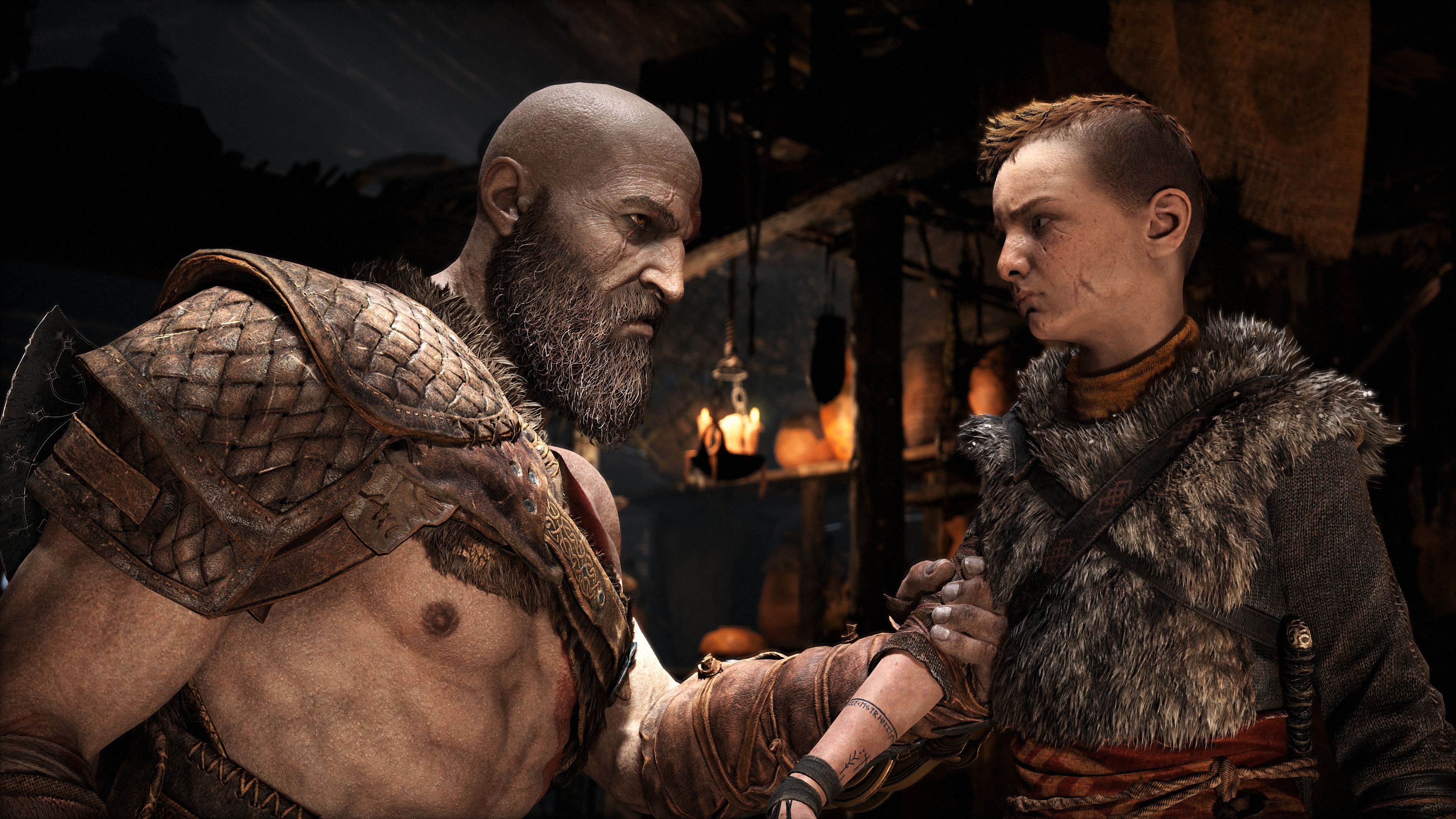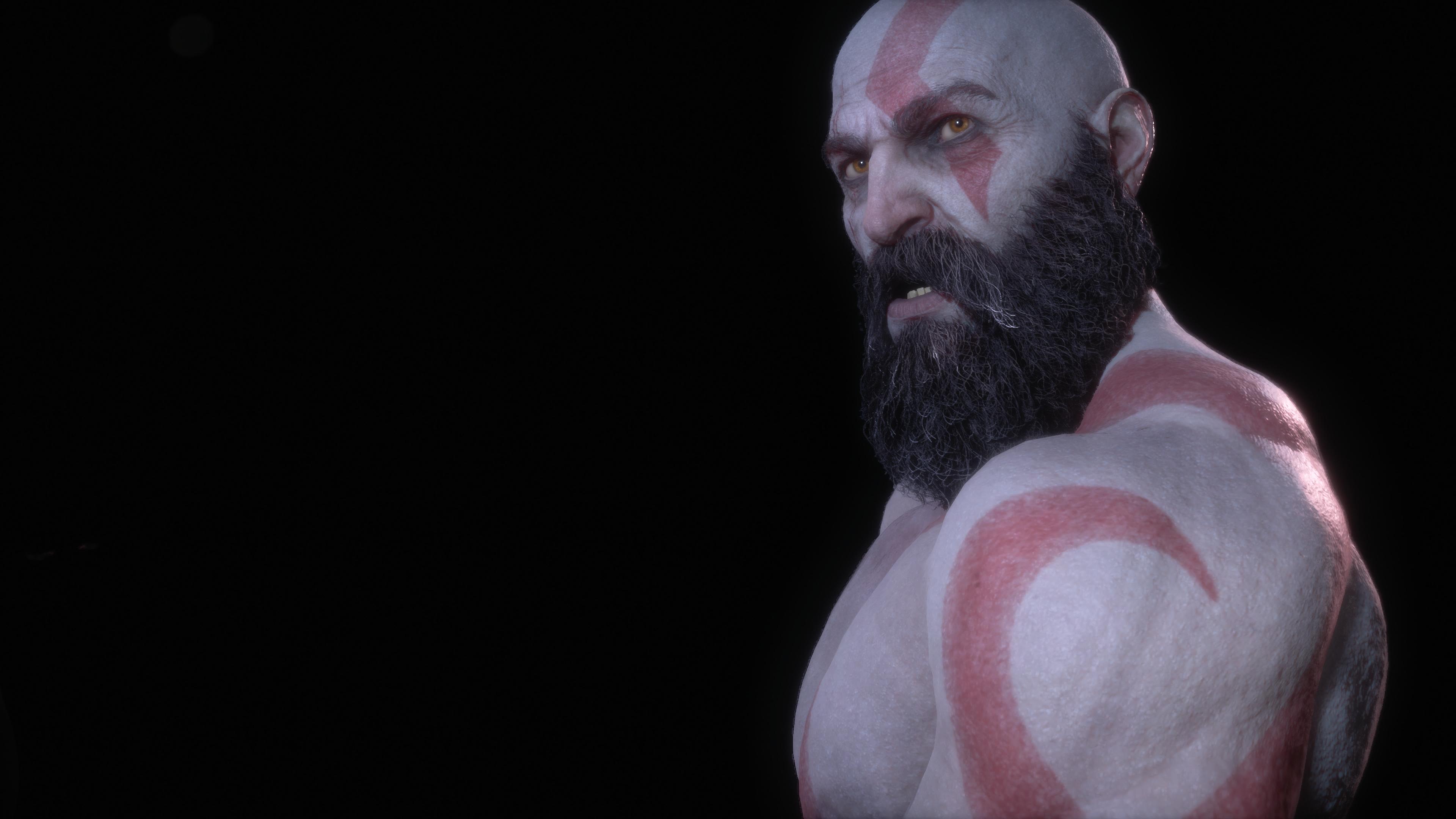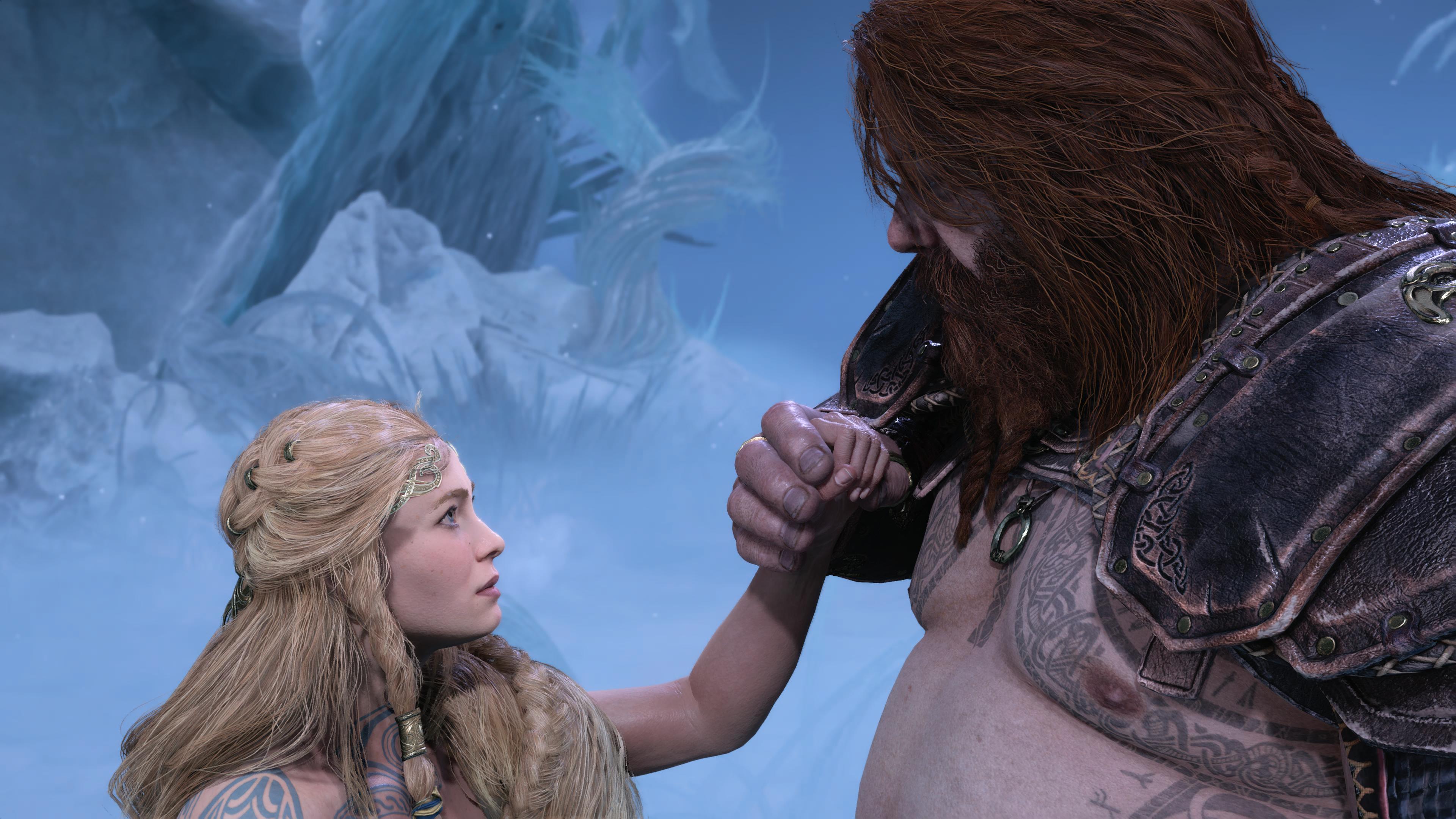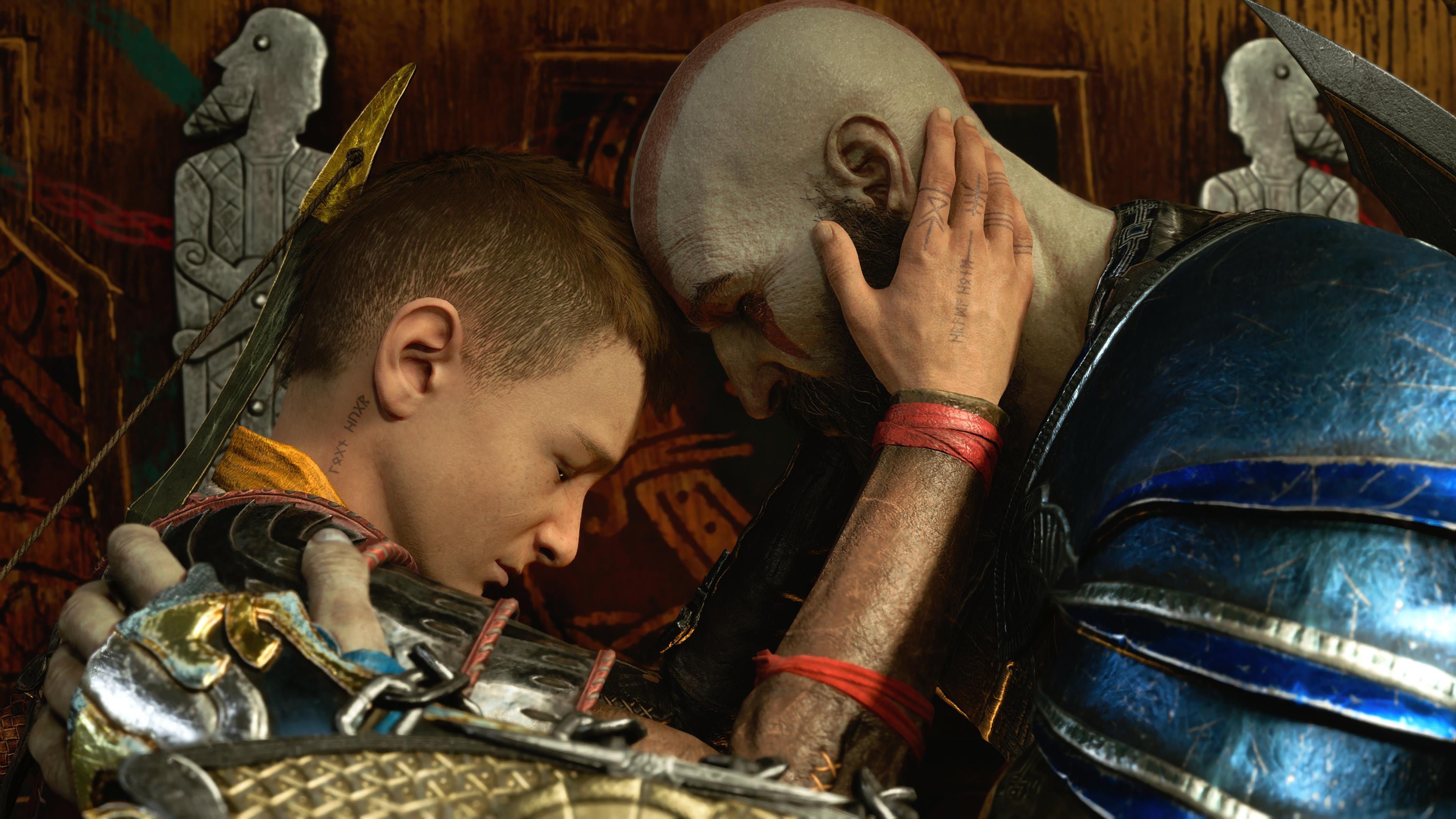
I remember the first time I saw my dad cry. I was a teenager, in the midst of a bad patch, and he was driving me home. As we danced around what was going on with me, as he always did, his eyes began to well up. He was worried – and I was stunned. I didn’t quite understand then what had sparked this emotional seepage, my dad had been a military man and we rarely spoke about feelings but, on this occasion, he couldn’t contain his concern. I felt for him.
I buried that memory. Yet, God of War Ragnarok brought it to the surface. It made me have more than a couple of emotional seepages of my own. Perhaps that’s because my journey with Kratos and Atreus to the highest peak in the Nine Realms had made me emotionally invested in their turbulent and often heartwrenching relationship. Maybe it’s because I saw the same expression my dad had on his face that day on Kratos’ throughout Ragnarok and I finally understood it. It’s probably both.
God of War Ragnarok’s exploration of parental themes is nothing new. God of War sowed the seeds of stormy father/son relationships with poignancy. Ragnarok, however, expands upon this by exploring how the bonds between parents and children can make or break us and how trauma can seep through a family. But, this time, the focus isn’t simply on Kratos and Atreus.
Spoilers for God of War and God of War Ragnarok ahead.
The sins of the father

When we pick up with Kratos and Atreus in Ragnarok, there’s a noticeable difference in the pair’s relationship. The scared, often annoying, Atreus we once knew has been replaced by a confident, competent teenager, who no longer needs his father’s help in the way he once did – or so he thinks. Kratos, too, has undergone a change. Having grown more empathetic towards his son on their journey to the Nine Realms, Kratos’ trust in Atreus seems only to have grown. At times, even he seems taken aback by how his once center-stage role has been sidelined somewhat by Atreus’ newfound capability.
In Ragnarok, it’s clear Kratos looks back on his old life as a series of mistakes – and they hang like a millstone around his neck.
The events of God of War Ragnarok put that relationship to the ultimate test. There’s a constant back and forth between the two throughout the game as the adolescent Atreus strives to prove he is a man now – while Kratos must remind him that he still has much to learn. This tension grows to an eventual breaking point, with Atreus ultimately running away to Asgard when Kratos’ desire to protect his offspring against Odin overrides his ability to trust him. Both father and son are right and wrong.
It’s achingly familiar. I too remember, in my early teens, the constant fights with my mother as I began to push the boundaries. I was convinced that I was old enough to do things that I absolutely wasn’t and the result was me lying about where I had been. I felt she was stifling me, she knew a 14-year-old shouldn’t be drinking under a bridge like a pubescent troll.
Sign up for breaking news, reviews, opinion, top tech deals, and more.
Like my mother, Kratos’ desire is to protect his son from an unkind world. Where he once was too harsh with his boy, he has now gone to the other extreme, wrapping him in cotton wool in fear. It’s understandable, too. Kratos himself didn’t exactly have the best upbringing. By his own admission, life as a young Spartan was challenging and violent. After all, warriors aren’t born, they’re built.
In Ragnarok, it’s clear Kratos looks back on his old life as a series of mistakes – and they hang like a millstone around his neck. His thirst for blood back in Sparta ultimately saw him accidentally slaughtering his first wife and child. When he later got remarried to Faye and had Atreus, flashbacks show that he was reluctant to become attached to his infant son out of fear of hurting him, but promised his wife before her death that he would protect him.
It’s understandable then that, when Kratos finally let his emotions for Atreus in, they aren’t exactly measured. But while his swaddling parenting intends to prevent history from repeating itself, it instead ultimately pushes him away – and sows some less-than-healthy seeds in his son around having feelings in general.
Keep it in the family,

But it’s not just Kratos dealing with parental troubles in Ragnarok. The thundering Thor also struggles with raising his teenage daughter Thrúd, who desires to become a Valkyrie. Thor, and his wife Sif, however, are less than thrilled with the prospect. Thor has already lost two children, Magni and Modi – slain by Kratos in God of War.
We get the sense that Thor and Sif weren’t great parents, with storyteller Mimir telling Atreus that Magni and Modi were raised “brutally” by the pair. According to the Mimir, Thor “thrashed” discipline into Magni and Modi time and time again, as his father did to him, passing a “poisonous notion of manhood” down through generations. When Atreus responds that both Sif and Thor have stopped drinking, likely due to the love they have for their daughter, Mimir replies the explanation for Sif going “straight” is probably “in hopes that raising a good daughter will redeem their past failures”, while Thor likely “struggles” with it.
This conversation is quietly one of the most poignant scenes in Ragnarok and once again taps into the theme of parents trying to rectify their past mistakes. And, like Kratos, we certainly do see Thor struggle with sobriety and coming to terms with his past mistakes, with Thrúd having to drag her drunken father out of the longhouse at one point. He’s a grieving parent but is making a whole new host of mistakes, with his daughter this time, based on the guilt he feels about the death of his sons. No one said being a parent was easy.
Making matters all the more challenging, Thor has his own toxic father to contend with, who berates him constantly and isn’t squeamish about putting the heads of his own family members on the chopping block to fulfill his whims. Thor is Odin’s attack dog, poisoned with the toxic notion of manhood Mimir spoke about. It’s this the god of thunder passed on to his own sons, never truly breaking the cycle. It’s “a grim inheritance, leaving them all the poorer,” as Mimir tells Atreus.
Reconciliation

While Odin never quite redeems himself, both Kratos and Thor ultimately find a way to come to terms with their past mistakes to become better parents. Kratos learns through his own actions that tightening the reins on Atreus only causes him to struggle more while Thor learns, through his journeys with Atreus, that his family shouldn’t have to bear the weight of his past mistakes and that he can be the one to end toxicity passed down by Odin.
Ultimately, it’s the children of Ragnarok that see the world with the most clarity – with a clean, unjaded slate. While they’re not always right, Thrúd and Atreus are the catalysts for the growth of these battle-hardened warriors. Ragnarok’s journey to break these generational cycles isn’t always pretty, but that’s families for you.
An award-winning games journalist, with seven years of experience in games journalism and a degree in journalism from City University, London, Vic brings experience from IGN, Eurogamer, The Telegraph, VG247, Dot Esports and more to the TechRadar table. You may have even heard her on the radio or speaking on a panel, as she’s previously appeared on BBC Radio 4, BBC Radio 5, BBC Radio Ulster and more. Not only is Vic passionate about games, but she's appeared on both panels and podcasts to discuss mental health awareness. Make sure to follow her on Twitter for more.